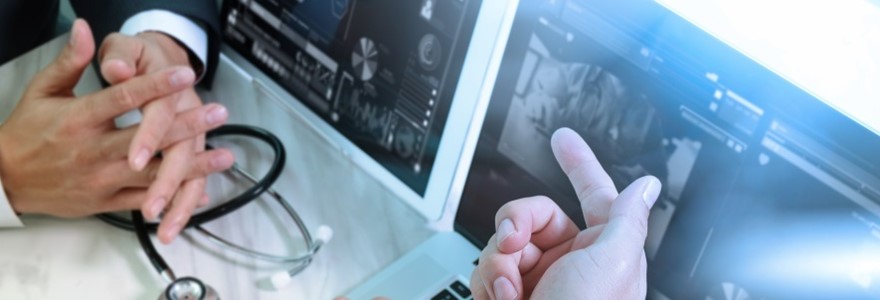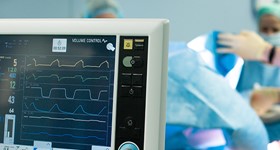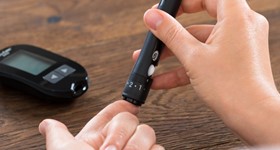Will South Korea continue to reign as Asia’s third largest medical devices market in 2019?

South Korea is now titled the world’s ninth and Asia’s third largest medical devices market, following closely behind Japan and China. As Asia continues to strengthen their foothold in the sector, massive growth is expected to be experienced in the years to come. As of 2018, its market value has increased to US$5.9 billion, and total imports of medical devices were estimated at US$3.5 billion, highlighting high sustenance of the sector through the recent years.
What is supporting the growth in Asia?
With a positive outlook globally, the medical devices industry is estimated to reach US$440 billion by 2020 according to the International Trade Administration. And what spurs this growth is Korea’s adaptability to technological changes through mainly hardware products, data and communications (software). At the same time, Food and Drug Administration (KFDA) which is South Korea’s main medical devices regulator is also revising its tight regulations as the market opens itself to a growing trend of offshoring and outsourcing. This is expected to drive the market at a compound annual growth rate of 10.9%.
What are the top subsectors within medical devices to look out for?
Cardiovascular devices
The cardiovascular subsector gained the most attention over the past few years and what were some of the highlights?
- Chest transplantation using 3D-printing technology marked its first success in South Korea
Professor Park Byung Joon and his team at Chung-Ang University Hospital’s Department of Thoracic and Cardiovascular Surgery announced the successful surgery results of transplanting a 3D-printed ribcage to a patient with sarcoma, a malignant tumour that invaded the thorax.
- Becton Dickinson’s (BD) acquisition of C.R. Bard
In 2017, the agreement that BD will acquire Bard at $24 billion had been unanimously approved by the Board of Directors in both companies.
This resulted in a highly differentiated medical technology company that is uniquely positioned to improve both the process of care and the treatment of disease for patients and healthcare providers. This transaction built on BD’s leadership position within medication management and infection prevention with an expanded offering of solutions across the care continuum.
Additionally, Bard’s strong product portfolio and innovation pipeline increased BD’s opportunities in fast-growing clinical areas, and the combination will enhance growth opportunities for the combined company in non-U.S. markets such as South Korea.
- Abiomed received FDA’s premarket approval (PMA) for the Impella RP heart pump
ABIOMED, Inc engages in the research, development, and sale of medical devices to assist or replace the pumping function of the failing heart. Providing a continuum of care to heart failure patients, the approval of Impella RP heart pump supports patients and cardiac surgeons in the heart surgery suite. This pump will provide patients with a temporary right ventricular support, and is the only FDA-approved device of its kind on the market according to the company.
As a result, Korea Investment Corp boosted its holdings in shares of ABIOMED by 40.5% during the third quarter of 2018. Korea Investment Corp now owns shares of the medical equipment provider’s stock worth $12,471,000, a sum that could potentially support the nation’s goal to represent 3.8% of global market share, and emerge as seventh place for medical devices globally.
Orthopedic and rehabilitation devices
The orthopedic and rehabilitation subsector had also gained a huge increase of market value over the past few years. Below were some of the biggest acquisitions, and potential plans that will sustain the growth of the sector:
- Wright Medical acquired IMASCAP SAS
Wright Medical Group is a publicly traded company that focuses on extremity joint replacement and bio-orthopedic material development, while IMASCAP SAS focuses on developing software for preoperative joint replacement surgery. The merger of both companies with combined strengths will bring about greater software-enhanced solutions and allow them to take advantage of the opportunity to get significantly ahead in this area.
- Medtronic to support Korean medical device companies
Representative of Medtronic had recently announced at a medical devices conference held in Seoul: “We are planning to concentrate more on Korean medical firms as the country has high-quality medical technology and highly developed engineering technology,” highlighting a commitment to invest in the Korea market, according to a report by the Korea Times.
Medtronic Korea, Asia Pacific and its Regional Headquarters in China, plan to select at least 10 promising companies within cardiovascular, diabetic, spinal and neurological fields who will present their products along with their technological capability and marketability. Moving forward, Medtronic plans to help these selected companies enter the Asian market either by utilising their global network or supporting them financially.
Medtronic CEO, Hurh Joon, shared “Through Medtronic's advanced technology and open innovation, we hope to create a medical device industry ecosystem that encompasses companies with promising technologies in a win-win model. The problems and development obstacles facing the medical industry needs broad cooperation among businesses, government and other related organizations and medical professionals.”
Will there be changes in the regulation of medical devices in South Korea?
As innovation within the industry continues to bring big returns to the medical devices market in Korea, regulators will need to ensure that Korea’s market remain robust with proper and revised guidelines in place.
The country has already established a licensing system considering characteristics of the latest medical devices today. This includes the initiation of ‘In Vitro Diagnostic (IVD) Medical Device Guideline’ and the ‘In Vitro Diagnostic Medical Device Act’ since December 2017.
It is also essential to simplify the performance test data of medical devices for IVD Medical devices. Distribution quality management standards will also need to be made suitable when it comes to online distribution of medical devices.
South Korea is also looking towards the construction of a safety management plan for medical devices with the use of Artificial Intelligence (AI) technologies. This aims to establish guidelines for evaluation of clinical efficacy of medical devices.
With that, the medical device market in South Korea is targeted for high growth. Located in the hub of Asia, the region is estimated to be at US$88 billion and is expected to grow to US$133 billion by 2020 to become the world’s second-largest market following the U.S. In order to stay competitive, pharmaceutical firms in Korea will need to open themselves up to foreign trade and business in China as well as other Asian giants in order to latch onto the even wider medical device market.
If you will like to find out more about the trends in South Korea or how the landscape for the medical device industry will be like in 2019, connect with Insung Cho, Senior Consultant of Real Life Sciences (Korea & Taiwan). You may also contact him at c.insung@realstaffing.com if you will like to find out how these trends may impact you as a professional within the medical devices industry. Do also get in touch to discover first-hand news on how organisations in Korea are implementing their talent strategies or follow us on our LinkedIn page for more industry related insights within the market.




